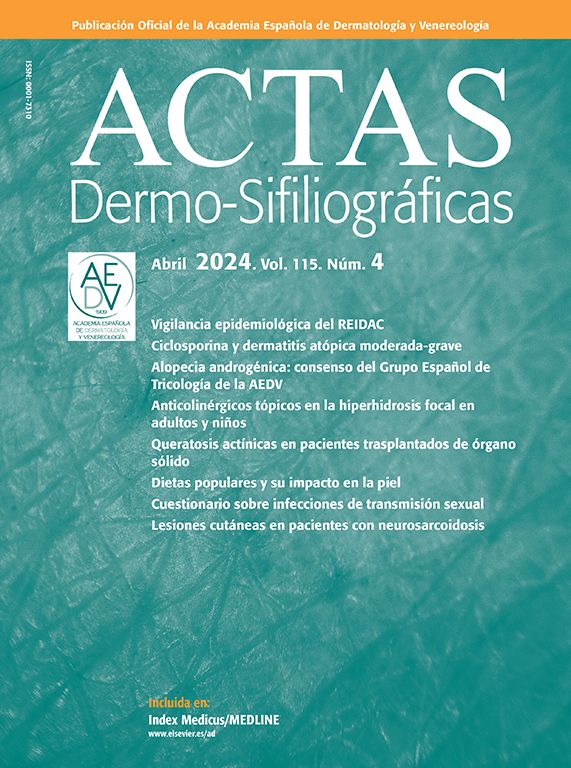Aunque la indicación principal de ustekinumab (UST) en el momento actual es la psoriasis, su innovador mecanismo de acción aventura otras indicaciones en un futuro próximo, entre ellas, la artritis psoriásica (APs) y la enfermedad de Crohn (EC).
La psoriasis y la APs son entidades donde la interacción de elementos de restricción genética, junto a factores ambientales e inmunológicos juegan un papel clave para dar lugar a las manifestaciones propias de ambas enfermedades. Una de las principales vías patogénicas en estas condiciones es el eje IL-23/Th17, y existen sobradas evidencias para apoyar intervenciones farmacológicas sobre el mismo. En el momento actual, sólo disponemos de un agente con capacidad de actuar sobre esta diana, UST, un anticuerpo monoclonal humano frente a la subunidad común p40 de la IL-12 e IL-23. Aunque disponemos de cierta información sobre su utilidad en el tratamiento de la APs, aún precisamos de más datos sobre su eficacia y seguridad en este campo.
Por otra parte, la EC es una enfermedad inflamatoria crónica de etiología desconocida que afecta al tubo digestivo. El tratamiento consiste en el uso de corticoides, inmunosupresores y anticuerpos anti factor de necrosis tumoral. Algunos pacientes no responden, por lo que es necesario disponer de alternativas de tratamiento, entre las que se encuentra UST. Recientemente, dos estudios fase IIb apuntan a que UST induce y mantiene la respuesta clínica en la EC, principalmente en pacientes con fracaso previo a infliximab y proteína C reactiva elevada en el momento del tratamiento. Aún quedan interrogantes por resolver, como la dosis más eficaz o la vía de administración más adecuada, y se precisan más estudios para evaluar la eficacia y determinar el mejor esquema terapéutico en la EC.
El presente trabajo revisa la información disponible hasta la fecha sobre la utilidad potencial de este nuevo agente en el tratamiento de la APs y la EC.
Although ustekinumab is currently licensed for the treatment of psoriasis, in view of the innovative mechanism of action of this biologic agent, it is reasonable to hypothesize that it will, in the near future, be approved for other indications, such as the treatment of psoriatic arthritis and Crohn disease.
Interactions between genetic, environmental, and immunological factors play a key role in the pathogenesis of both psoriasis and psoriatic arthritis. The IL-23/TH17 axis is one of the main pathogenic pathways in these diseases, and there is ample evidence to support the use of pharmacologic agents targeting this pathway. Ustekinumab, a human monoclonal antibody that binds to the p40 subunit shared by IL-12 and IL-23, is currently the only agent capable of modulating the IL-23/TH17 pathway. While there is some evidence supporting the use of ustekinumab in the treatment of psoriatic arthritis, more data on safety and efficacy are required.
Crohn disease is a chronic inflammatory disease of unknown etiology that affects the digestive tract. It is treated with corticosteroids, immunosuppressants, and anti-TNF agents. Alternative treatments, such as ustekinumab, however, are needed for patients who do not respond to conventional therapy. The results of 2 recent phase IIb studies showed that ustekinumab induced and maintained clinical response in patients with Crohn disease; most of those who responded well had previously been unsuccessfully treated with infliximab and had elevated C reactive protein levels at the time of treatment. Many issues remain to be resolved, including the establishment of an optimal dose and administration route. Further studies are needed to evaluate the efficacy of ustekinumab in Crohn disease and to determine the best treatment regimen.
The present chapter reviews the current evidence on the potential usefulness of ustekinumab in the treatment of psoriatic arthritis and Crohn disease.





